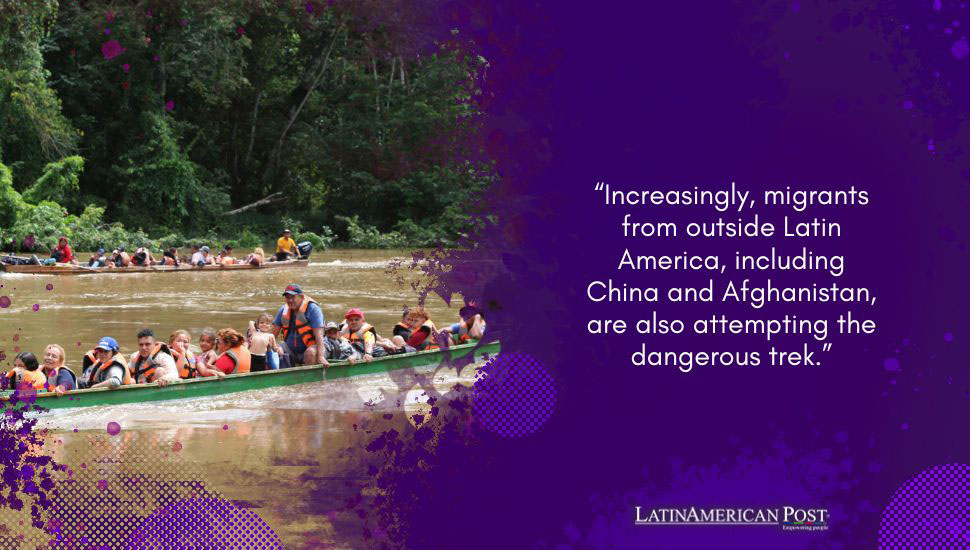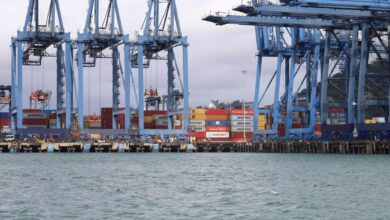Panama and U.S. Plan to Curb Migration Through Darien Jungle Faces Doubts

A new agreement between Panama and the United States aims to deter migrants from crossing the dangerous Darien jungle by repatriating those entering Panama illegally. Analysts, however, are skeptical about its success and warn of potential increased dangers.
A new agreement between Panama and the United States aims to deter migrants from crossing the dangerous Darien jungle by repatriating those entering Panama illegally. However, analysts consulted by Reuters are skeptical about its success and warn of potential increased dangers.
The plan, announced on Monday, involves Washington covering the cost of repatriating migrants. However, analysts believe the initiative will struggle against the number of people arriving in Panama. Last year alone, a record 520,000 migrants crossed the Darien, a stretch of jungle dividing Panama and Colombia where travelers often face robbery, violence, human trafficking, and sexual abuse, according to Reuters.
Challenges and Risks in the Darien Jungle
The Darien jungle has become a notorious passage for migrants from various regions, particularly from Venezuela and other South American countries like Ecuador, which are facing internal strife. Increasingly, migrants from outside Latin America, including China and Afghanistan, are also attempting the dangerous trek. The majority of these migrants aim to reach the United States, prompting Panamanian authorities to seek international assistance and bolster border security, though migrant numbers continue to rise.
Despite the announcement, Panama’s presidency, the U.S. State Department, and the Department of Homeland Security did not immediately respond to requests for comment. The analysts argue that any success in reducing the number of migrants crossing the Darien would likely increase the number of migrants crossing other, potentially even more dangerous, routes.
U.S. Immigration Policies and Their Impact
Immigration remains a core issue in the upcoming U.S. presidential election in November. President Joe Biden is keen to demonstrate his ability to control illegal crossings at the southern U.S. border. He has highlighted a recent decline in apprehensions at the U.S.-Mexico border as evidence that his policies, including a broad asylum ban on migrants caught crossing illegally, are effective, Reuters noted
However, doubts persist about Panama’s ability to organize enough repatriation flights to make a significant difference. Adam Isacson of the Washington Office on Latin American Affairs think tank noted that even if Panama managed one flight per day, accommodating 100-150 people, between 85% and 90% of migrants would still avoid deportation and continue their journey. “The chance of ‘one plane per day’ happening is super-slim. These flights are expensive… I wouldn’t expect enough funds to run more than two or three flights per week at the most,” Isacson told Reuters.
Eric Jacobstein, Deputy Assistant Secretary in the Bureau of Western Hemisphere Affairs, stated that the U.S. has allocated $6 million to support the program. A senior Biden administration official described the initiative as a pilot program to be evaluated over the next six months. If successful, it could be expanded and rolled out to other countries, Reuters reports.
Speaking anonymously to Reuters, the official said, “We view this as seed funding that will help them start their repatriation program. It is a pilot program to start but something that we would have every expectation of wanting to continue if the results are what we expect they will be”.
Past attempts by Panama to curb the flow of migrants through the Darien have also failed. In September, the country announced new measures to reduce migrant numbers, including increased deportations and changes to visa rules for several nationalities. However, these measures appear to have had little impact.
Prospects for the New Agreement
The new agreement, announced by President Jose Raul Mulino during his inauguration, suggests that repatriation flights are a core part of his administration’s policy. Guillermo Cochez, a former Panamanian ambassador to the Organization of American States, expressed hope that the new measures could work. “I think it will have a positive impact. These repatriations, which in principle will take 100 or 150 people, will discourage others from crossing,” Cochez told Reuters.
Others remain skeptical. Migration expert Israel Ibarra from Mexico’s College of the Northern Border Research Institute believes the new measures may drive migrants to seek even more dangerous routes. “The new announcement… is not going to stop the migratory flow but, on the contrary, is going to take it to more dangerous routes,” Ibarra told Reuters. Some migrants are already avoiding the Darien by taking ill-equipped boats through the Caribbean or charter flights into Nicaragua and El Salvador.
The investigation also found that migrants are increasingly turning to charter flights to fly into Nicaragua and El Salvador. Ibarra noted that the primary beneficiaries of these changes are likely to be criminal groups, which will exploit the situation by increasing the costs of human trafficking.
Also read: Panama’s Immigration Policy Shift May Have Wide Repercussions
While the new agreement between Panama and the United States aims to address illegal migration through the Darien jungle, its success is still being determined. The complex and hazardous nature of migration routes and the logistical and financial challenges of repatriation efforts pose significant hurdles. As the pilot program unfolds, its impact on migrant flows and the broader implications for U.S. and Latin American immigration policies will become more apparent.





